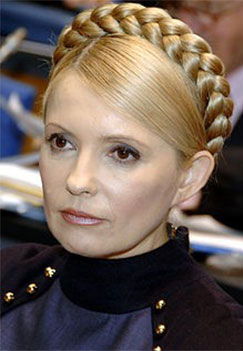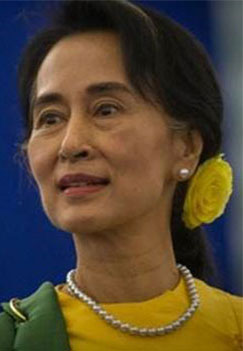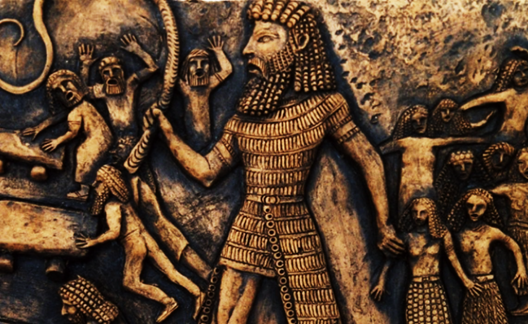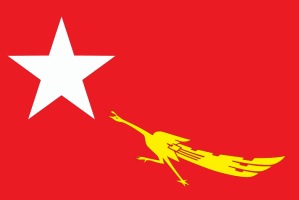An Unfortunate Parallel
A good friend sent me an essay by Myo Yan Naung Thein, a Visiting Researcher of the Democratic Futures Core Working Group at the University of Virginia. Before writing this article, I read about a piece from the University of Virginia’s UVAToday. That article mentioned that Thein had spent years in one of Myanmar’s gulags. Interestingly, he is like Min Ko Naing, who also spent years in prison. While visiting Myanmar, I interviewed Min Ko Naing during my winter break from teaching in 2013-2014.
Thein and his wife escaped Myanmar and crossed into Thailand, where the US Embassy in Bangkok gave them emergency visas to relocate to the States. Because of UVA’s interest in Myanmar, he wound up at that university.
In his article, Thein mentions that China is concerned about the military coup's floundering, partly due to the National Unity Government (NUG). China fears the West might become involved by supporting the NUG and other freedom fighter groups, which could topple the military government.
I have been in Myanmar three times in the past decade. During that period, the ebb and flow between returning to democracy or military dictatorships was obvious. Myanmar started moving toward an emerging democracy when Gen. Aung San negotiated with the British to leave Burma after WWII. However, he was assassinated on July 19, 1947, by some Burmese military enemies.
For nearly eight decades, there have been internal fighting and insurgencies in Burma, which is now called Myanmar. This is a video of the chaos that is created for the people. The military junta’s war has resulted in a large number of refugees in Northern Shan State. Some of the refugees fled to Shan State to cities like Taunggyi. Many stay in Buddhist monasteries.
In Thein’s observation, he lists several significant setbacks to the military junta. The Chinese government would like to impose an interim government in Myanmar. They plan to have elections that would look like a new democratic government.
Essentially, Thein believes that imposing a Chinese-style election upon Myanmar would provide an improvement to the military dictatorship and win over the citizens. However, the Chinese have elections in their country. Nonetheless, all candidates running for an election must be approved by the Chinese Communist Party (CCP) before their names appear on a ballot. Once the CCP legitimizes the candidate, that is the only name for a particular office on the ballot. In China, it is unlawful to have an opposition candidate running against the party’s candidate.
I don’t see how the people in Myanmar would see the Chinese taking over the country as an improvement. It isn’t. The reason for the Chinese creating a puppet state in Myanmar isn’t for the locals. The Chinese have vast investments in Myanmar. China wants to protect its investments.
While Thein doesn’t mention Ukraine in his paper, there is a parallel between Myanmar and Ukraine. Both countries are in the process of maintaining their independence. Ukraine wants to rid itself of Russia. Ukraine got its independence on December 26, 1991.
However, Putin wants to retake control of Ukraine despite the leaders of the Orange Revolution, like Yulia.
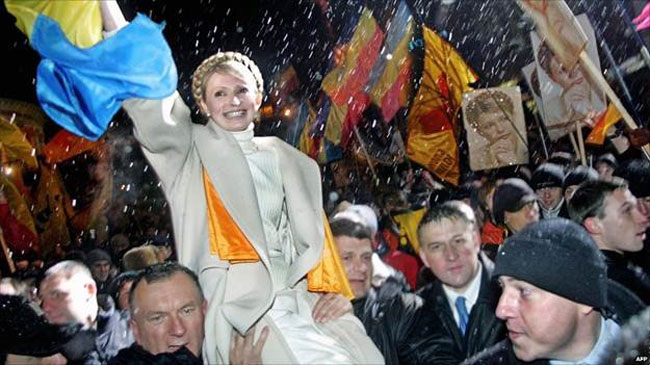
Yulia Tymoshenko during the Orange Revolution
The parallels between the two countries are apparent. Yulia Tymoshenko and Aung San Suu Kyi are more than interesting. They both fought for the independence of their countries, resulting in their being jailed. Aung San Suu Kyi was involved with the Saffron Revolution and Yulia Tymoshenko in the Orange Revolution. Yulia Tymoshenko is free, but Aung San Suu Kyi is still in an unknown gulag.
Over the years, I have written about Jalāl al-Dīn Muḥammad Rūmī. The Western world calls him Rumi. Rumi lived in Persia and was a poet in the 13th century. His masterpiece was Maṭnawīye Ma’nawī, Spiritual Couplets; مثنوی معنوی. Within the Islamic world, his poem is called The Quran in Persian. Interestingly, many scholars consider Maṭnawīye Ma’nawī the best mystical poem in the entire world. It is an exceptionally long 27,000-line poem made up of couplets. Remember this couplet.
If everything around you seems dark, look again.
You may be the light!
While most of us don’t live in Ukraine or Myanmar, that doesn’t excuse us from caring. Each of us needs to reach and support those in both countries. At the national level, America is helping Ukraine. We need to think about what Rumi wrote. “You may be the light!” If you were suffering, you would want someone to reach out to you.
Be the light!







